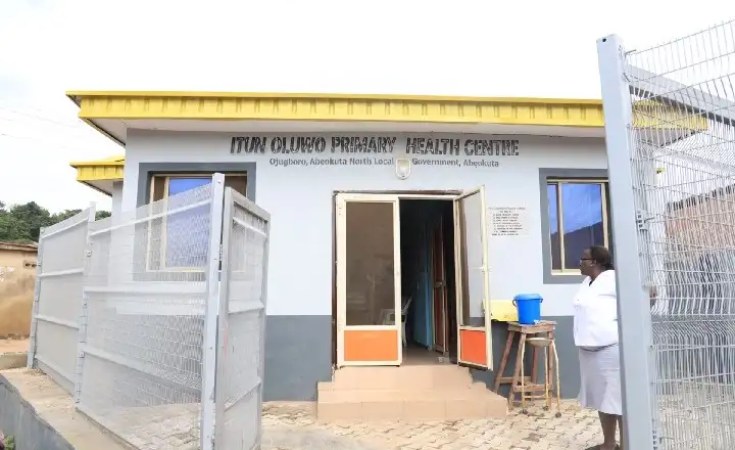The NPHCDA boss said the government is introducing Community-based Health Research, Innovative-training and Services Programme (CRISP) to address the challenge.
The Nigerian government on Wednesday said only 463 (1.8 per cent) out of 25,380 Primary Healthcare Centres (PHC) in the country possess the required number of Skilled Birth Attendants (SBAs).
While speaking at a media briefing in Abuja, the Executive Director of the National Primary Health Care Development Agency (NPHCDA), Faisal Shuaib, said there is an unequal distribution of available SBAs among the PHC facilities in the country.
Mr Shuaib said the government is introducing the Community-based Health Research, Innovative-training and Services Programme (CRISP ) to address this significant challenge. He said CRISP will be launched on 22 May, at the banquet hall of the state house.
About CRISP
Mr Shuaib said CRISP aims to leverage the rural posting of resident doctors to support PHC development in partnership with Teaching Hospitals, Federal Medical Centres, State Primary Health Care Boards, Local Government Health Authorities, and communities.
He said the intervention specifically focuses on increasing, retaining, and improving the quality, competency, and distribution of a committed PHC workforce, including facility outreach and community-based health workers.
Mr Shuaib said: "This will be achieved through effective management supervision, appropriate compensation, and the recruitment and deployment of Human Resources for Health, such as medical doctors, midwives, nurses, and Community Health Extension Workers (CHEWs), to prioritise PHC facilities nationwide."
He said the implementation of CRISP will be phased across the 36 states and the Federal Capital Territory (FCT), adding that the funding "will come from the government, supported by development partners, philanthropists, and other stakeholders."
Human resources
Mr Shuaib highlighted the critical importance of addressing the human resource gaps in PHCs, as the majority of maternal and child deaths in Nigeria occur at the community level due to the lack of skilled health workers.
He said the goal is to make PHC centres more attractive to skilled health workers who tend to prefer urban secondary and tertiary health facilities.
He noted that scientific evidence supports the effectiveness of interventions provided by skilled health workers in reducing maternal and newborn mortality.
In his remarks, the World Health Organisation (WHO) Country Representative, Walter Molumbo, emphasised the importance of accelerating efforts in the health sector, as outlined in the upcoming strategy to be unveiled by the WHO Director-General during the 75th World Assembly.
Mr Molumbo said the strategy focuses on promoting health, providing health services, protecting health, empowering health through digital technology and innovation, and performing for health by strengthening WHO country offices.
Speaking at the briefing, the United Nations Children's Fund (UNICEF) representative, Eduardo Celades, highlighted the gaps in access to quality healthcare in Nigeria.
Mr Celades noted that only 70 per cent of pregnant women currently have access to antenatal care, with just 60 per cent receiving complete antenatal checkups.
He expresses UNICEF's support and commitment to the CRISP programme and announced the UN agency's intention to allocate additional resources to expand its scope.
"The programme aligns with UNICEF's objectives to enhance maternal and child healthcare. The collaboration between UNICEF, partners, and donors aims to strengthen primary healthcare services and aligns with the revitalisation agenda set by NPHCDA," he said.
He said this comprehensive approach to primary healthcare demonstrates a concerted effort to ensure critical healthcare services are available at the grassroots level.


